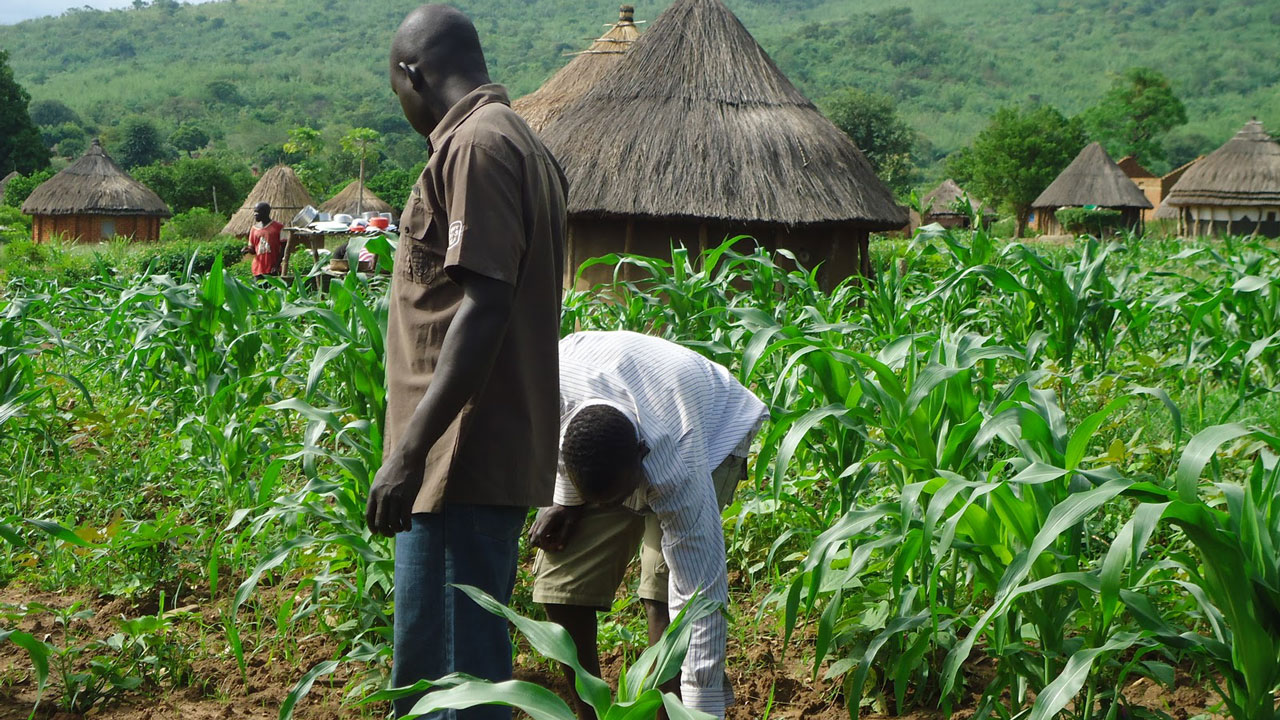Agri-businesses and Micro, Small and Medium Enterprises (MSMEs) are set to enjoy more access to affordable and sustainable finance with the unveiling of new policy guidelines by the Central Bank of Nigeria (CBN), Daily Trust reports.
The guidelines for Non-Interest Financial Institutions (NIFIs) under its Agri-Business, Small and Medium Enterprise Investment Scheme (AGSMEIS) and Micro, Small and Medium Enterprises Development Fund (MSMEDF) were unveiled by the apex bank on Tuesday.
- CBN seeks exclusive right to bank licensing, revocation
- CBN, AGF appear before Reps over N81.5bn NDDC expenditure in 5 months
Financing under the scheme will also be for start-ups, business expansion or revival of ailing companies and shall be in compliance with provisions of BOFIA (1991) as amended and the principles underpinning operations of NIFIs.
Experts say the development will pave the way for people who don’t like interest based facilities to have access to funds, including those without collateral to present.
The 10 guidelines included the Accelerated Agricultural Development Scheme (AADS) and seven other intervention schemes in its bouquet.
They followed the CBN’s June, 2020 meeting where it announced plans to integrate non-interest windows in its intervention programmes to support businesses and households negatively impacted by COVID-19.
Based on the guidelines for the operations of NIFIs, the CBN would create a Fund to be known as ‘AGSMEIS Non-Interest Fund’ to be domiciled in a dedicated account with the apex bank.
The guidelines stipulated that each non-interest deposit bank (full-fledged or window) was to set aside five percent of its Profit After Tax (PAT) annually as contribution to the Fund.
It added that each non-interest deposit bank was also to transfer its contribution to the CBN not later than 10 working days after the Annual General Meeting (AGM) of the participating bank.
Eligible activities under the scheme, according to the CBN, are businesses across the agricultural value chain, covering production, inputs supply, storage, processing, logistics and marketing.
Others are MSMEs in the real sector including manufacturing, mining and petrochemicals.
It disclosed that others were MSMEs in the service sector including information and communication technology (ICT) and the creative industry as well as other activities as the CBN may determine from time to time.
According to the CBN: “The MSMEDF for NIFIs guidelines are aimed to channel low return funds to the MSME sub-sector of the Nigerian economy through participating Financial Institutions (PFIs) to enhance access by MSMEs to financial services.
“Similarly, the non-interest guidelines for the AADS are aimed at engaging a minimum of 370,000 youths in agricultural production across the country between now and 2023, in order to reduce unemployment among the youth in the country.
“While the specific objectives of the MSMEDF for NIFIs are to increase the productivity and output of microenterprises, job creation and engender inclusive growth, those of the AADS are to increase agricultural production towards food security, job creation and economic diversification, the CBN said.
“The non-interest guidelines for the AADS, which is targeted at Nigerian youth between 18 and 35 years, seek to promote interaction among state governments, the CBN and other stakeholders in the agricultural value chain in each state.
“To enhance job creation in the agricultural sector, with focus on two crops where states have comparative advantage,” it stated.
Other non-interest guidelines issued by the CBN were for the Anchor Borrowers’ Programme, the Credit Support for the Health Sector and Intervention in the Textile Sector.
There is also the Real Sector Support Facility (RSSF) revised guidelines (V3); and the Real Sector Support Facility (RSSF).
‘Facilities will empower the poor’
Speaking on the workability of the CBN initiative, the Chief Imam of Kano- based Al-Furqan Mosque, Dr Bashir Aliyu Umar, who is familiar with the initiative, said, “The CBN has been issuing intervention schemes in various sectors of the economy including agriculture and non-oil export, textile industry and MSEs.
“But the problem with these intervention funds is that they have always been interest based.
“The CBN will issue the funds to commercial banks at certain interest and the banks would then lend the money at a higher interest.
“But even though the interest rate in all is much lower than the market rate, it is still interest and on account of this, it has been a source of worry to Muslims because they have been disenfranchised.
“They were unable to access these funds and it is very obvious for people who are monitoring the disbursement that it is not even.
“For instance, the extent of poverty in the North is much higher than in other parts of the country and one of the reasons is that businesses don’t have access to capital.
“This is because, no matter what you tell the people, once the condition for the loan is tied to the interest they will not take it.
“So, in 2017, the CBN issued the commercial agriculture credit non-interest scheme and it has been in operation.
“And they promised that all subsequent CBN interventions would have a non-interest version.
“Now they have come with these, they are supposed to be about 11 different interventions. Essentially, instead of lending, there are CBN finances.
“They give the funds to Islamic banks on the partnership, what they called ‘restricted partnership’ financing mode with clear guidelines that if they are going to finance, they would use the approved contract that are not loan contract because Islamic banks cannot lend at interest but they can finance, either using a sale contract or a lease contract, or any of several contracts that have been approved for them by the CBN after a panel of Sharia scholars have certified it that they are compliant to Sharia, they are non-interest.
“So, it is using this kind of contracts that the non-interest banks would use the funds from the CBN to finance customers who do not want to deal with interest-based lending, or interest-based borrowing
“And the percentage of return, which should be 9 percent or 5 per cent maybe, it would be the same percentage.
“But for the conventional, it is interest on a loan, but for the Islamic bank, it is going to be either a profit based on a sale or profit based on a rental or lease contract.
“They are addressing all the critical sectors of the economy especially agriculture and those who want to start up businesses including the youths,” he said.
According to him, some of the funds do not need collateral.
“You just need to present your certificate, like a NYSC certificate and you will get the loan.
“But you will have to have a very good business plan.
“This is a very significant milestone and the CBN has been responsive to the needs of the people,” he said.
‘It is a win-win for biz owners, banks’
Commenting on the cotton facility guidelines, Mr. Anibe Achimugu, who is the Managing Director/CEO-Arewa Cotton Nigeria and the National President of National Cotton Association of Nigeria, said: “It is obviously a welcome development particularly that is targeted for the youth.
“Anything that will sustain and jumpstart the interest of the youth in agriculture and thinking it as a business is a wonderful development.
“Interest rate has always been a major problem in Nigeria and which has made it difficult to compete with our neighbours let alone internationally.
“That is why foreigners come here with cheap funds and take over our economy,” he said.
In his remarks, the Founder/Chief Operating Officer of TajBank, Mr. Hamid Joda, described the policy measure as a welcomed development “with huge potential for improved performance of MSMEs, which over the years, have been facing funding challenges due to the interest regimes on various facilities as well as the overall performance of the economy.”
According to him, based on non-interest banking model,which TajBank is operating, the MSMEs will have access to free funds while the implementation of the guidelines would enable non-interest banks to deepen their operations with the attendant win-win benefits for manufacturers, agribusiness owners, the non-interest lenders as well as the economy.
An Economist, David Aku said the new guidelines will give more opportunities to the North to be financially included and reduce exclusion numbers especially in the North West and North East with the least number of adults with access to financial services.
Professor of Capital Market, Uche Uwaleke, said: “The various policies for which the Central Bank of Nigeria has now released operating guidelines are meant to boost confidence in the banking sector and improve assets quality as well as reduce non-performing loans.”
On the non-interest version of the Anchor Borrower products, he said it will facilitate credit delivery as the new product will open up a new set of clientele.
He said the previous high interest rate environment was a demotivator for willing borrowers.
Farmers speak

Mr Adams Peter Eloyi, a young farmer and youth leader said it will be a welcome development if it trickles down to the real young farmers in the rural areas.
“It is not the first time that we are hearing that the CBN is doing employment initiatives for the young people through the agricultural sector.
“But is the fund accessible for a young farmer who is in a rural community, who does not have a CBN in his local govt?
“Is it accessible for a young woman who is a farmer and is not well educated?
“Do they have the capacity to access it?
“Do they have the capacity to write formal proposals to any participating financial institutions, the PFIs that are implementing the programme on behalf of the CBN?” he queried
“My fear is that many young people who are going to be accessing this fund might not even have farms, they might just have the prior information and the capacity to write the proposal, but the real farmers who are in the rural communities might not have the information and the capacity to key into it,” youth leader said.
On his part, the national president of the All Farmers Association of Nigeria (AFAN), Architect Kabiru Ibrahim said the initiative will be a welcome development if properly implemented.
He advised the CBN to identify real young farmers to avoid a hijack of the process adding that the Bank and the implementing partners should work with commodities associations that have the detailed data and acreage of real farmers and their farm locations.
Also, the Coordinator, Africa Health Budget Network (AHBN), Dr Aminu Magashi said the intervention was good for the health sector.
He, however, advised that the process of selecting beneficiaries must be transparent.
He said it would give local manufacturers access to flexible money to locally produce Personal Protective Equipment (PPEs).
According to him, this will ensure that health workers get PPE at cheaper rates and in good quantity and quality.
“This will reduce deaths among health workers,” he said.
Dr Magashi said the intervention would also enable local pharmaceutical companies to access funds to develop drugs in Nigeria, and also create jobs for the populace.

 Join Daily Trust WhatsApp Community For Quick Access To News and Happenings Around You.
Join Daily Trust WhatsApp Community For Quick Access To News and Happenings Around You.


